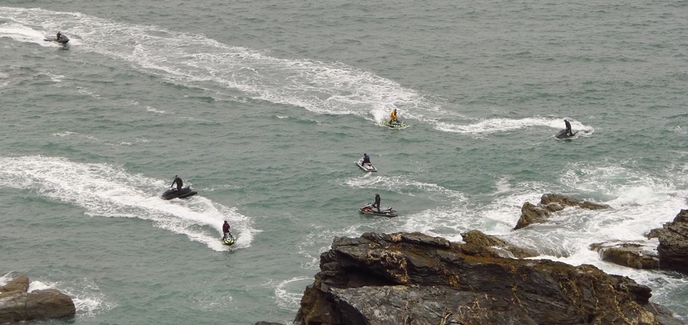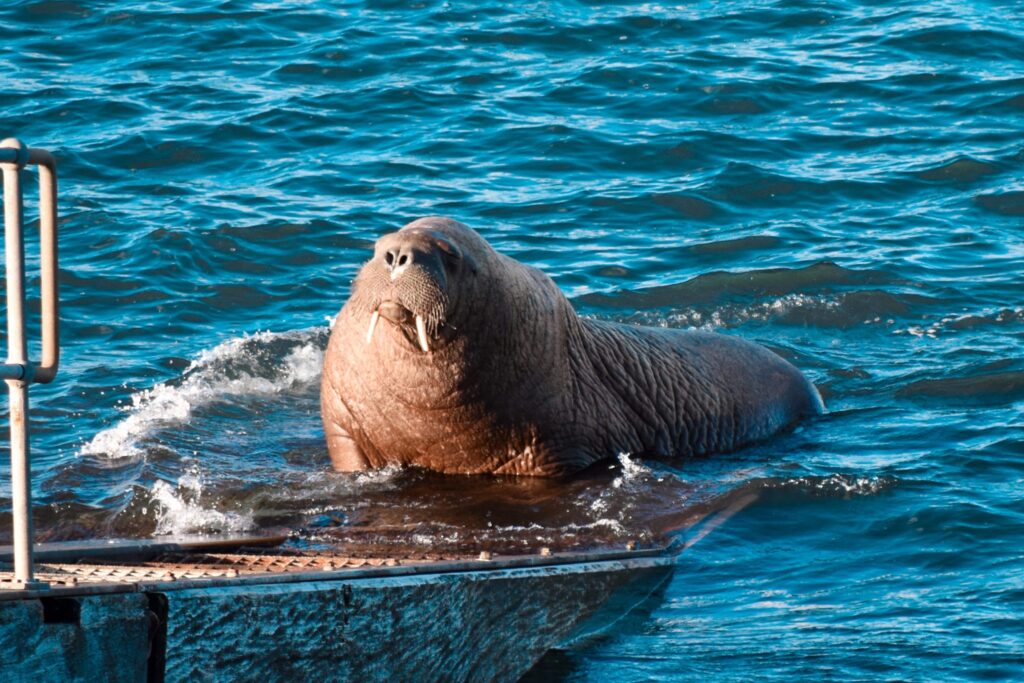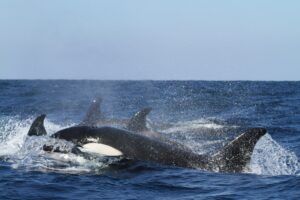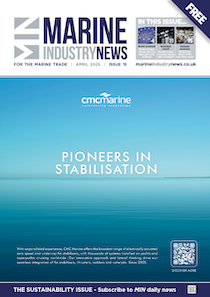England launches first Marine and Coastal Wildlife Code
 Jet skis disturbing seals in a quiet Cornish cove. Image: Cornwall Seal Group Research Trust
Jet skis disturbing seals in a quiet Cornish cove. Image: Cornwall Seal Group Research Trust
England today launches its first national Marine and Coastal Wildlife Code, designed to help people visit the coast responsibly.
Developed in collaboration with organisations including Whale and Dolphin Conservation, the RSPB, Shark Trust and Cornwall Seal Group Research Trust, the government-issued Marine and Coastal Wildlife Code includes advice for those walking along the coast or taking part in water-based activities such as kayaking, paddleboarding or jet skiing.
Home to around 95 per cent of Europe’s grey seal population and around 25 per cent of Europe’s breeding seabirds, the British coastline supports many important species and habitats.
However, as visitors to the nation’s coastlines rise, there are concerns about potential disruption to marine wildlife. For example, several walruses, including those affectionately known as Wally and Thor, have received unwanted attention in recent years after attracting interest on social media. In 2022, a 600kg walrus nicknamed Freya — who had made appearances in the UK — was killed by Norwegian authorities after being deemed a risk to the crowds gathering to view her.

Equally, young seals can use up vital energy if startled by people getting too close or being too noisy, meaning young pups struggle to haul out of the water to rest and digest their food. In a bad year of disturbance, only 25 per cent are likely to survive to the age of 18 months.
“Ensuring everyone has access to nature is a priority for this government – but is it absolutely vital that people enjoy nature responsibly,” says marine minister Richard Benyon.
“The Marine and Coastal Wildlife Code will enable everyone to make the most of our treasured outdoor places whilst protecting the very species and habitats that make our coastline so special.”
The Marine and Coastal Wildlife Code builds on the existing Countryside Code, which provides guidance for spending time outdoors. The Marine and Coastal Wildlife Code offers specific guidance around animals such as seabirds, seals, dolphins, sharks and turtles, including information on breeding seasons and how species might react to disturbance.
“Whales and dolphins are at significant and increasing risk of harm from the impact of human disturbance,” says Dr Carla Boreham, director of Campaigns for Whale and Dolphin Conservation. “It’s important for people to understand and follow the new code so that marine mammals aren’t injured or distressed when paddleboards, boats or other vessels are around.”
Visitors can disturb wildlife by approaching animals to take photos, crowding or circling them, making noise, losing control of their dog or damaging and changing habitats.
The Cornish Wildlife Trust has reported that disturbance incidents, such as those involving coastal walkers, jet skis and paddle sports, have more than tripled in Cornwall since 2014. Disturbance is reported to be one of the greatest threats to Britain’s breeding seabirds.
The code also gives guidance on how to report injured, distressed or dead animals, including through the Cetacean Strandings Investigation Programme (CSIP). Working with CSIP, Defra has announced almost £700,000 to fund research to help protect the harbour and grey seals in UK waters.
“Seals need space to rest, digest, moult and pup,” says Sue Sayer from Cornwall Seal Group Research Trust. “Yet findings from the Seal Research Trust revealed seals are routinely or frequently disturbed by human activity, causing them to use up vital energy and meaning some seals are sadly unable to survive.
“Our Give Seal Space campaign is already raising awareness, and we are delighted to welcome the launch of the Marine and Coastal Wildlife Code, which will provide a single code of best practice to help everyone understand what they can do to help protect valuable marine wildlife as we all enjoy our staggering coastal habitat.”
Amanda Craig, director for Connecting People with Nature at Natural England, adds: “The benefits of spending time in nature cannot be overstated and we want to see people of all ages and backgrounds out and about enjoying our magnificent coastline.
“To make sure everyone can continue to reap the benefits, it is absolutely vital we all play our part in protecting marine wildlife and habitats, and the Marine and Coastal Wildlife Code will help equip people with the knowledge to do just that.”
Yesterday (23 May 2023), MIN reported that walrus, narwhal, orca whales, sperm whales and hippopotamus are set to receive greater legal protections under the UK’s ban on importing, exporting and dealing in items containing ivory.











As a nation we suffer from low fish stocks of all species. Seals eat an enormous volume of fish each year. Surely it would be good to reduce the seal stock to the same levels as the rest of Europe and provide a significant boost to our national fish stocks.
Thus we should encourage public acts that cause seal stocks to reduce.